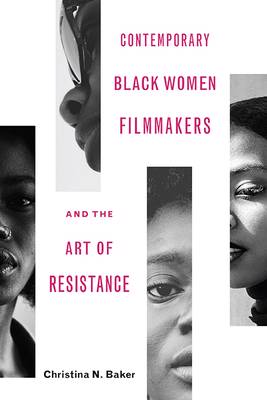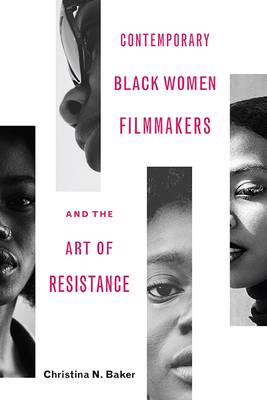
- Afhalen na 1 uur in een winkel met voorraad
- Gratis thuislevering in België vanaf € 30
- Ruim aanbod met 7 miljoen producten
- Afhalen na 1 uur in een winkel met voorraad
- Gratis thuislevering in België vanaf € 30
- Ruim aanbod met 7 miljoen producten
Zoeken
Contemporary Black Women Filmmakers and the Art of Resistance
Christina N Baker
€ 169,95
+ 339 punten
Uitvoering
Omschrijving
Christina N. Baker's Contemporary Black Women Filmmakers and the Art of Resistance is the first book-length analysis of representations of Black femaleness in the feature films of Black women filmmakers. These filmmakers resist dominant ideologies about Black womanhood, deliberately and creatively reconstructing meanings of Blackness that draw from their personal experiences and create new symbolic meaning of Black femaleness within mainstream culture. Addressing social issues such as the exploitation of Black women in the entertainment industry, the impact of mass incarceration on Black women, political activism, and violence, these films also engage with personal issues as complex as love, motherhood, and sexual identity. Baker argues that their counter-hegemonic representations have the potential to transform the narratives surrounding Black femaleness. At the intersection of Black feminism and womanism, Baker develops a "womanist artistic standpoint" theory, drawing from the work of Alice Walker, Patricia Hill Collins, bell hooks, Audre Lorde, and Kimberlé Crenshaw.
Analyzing the cultural texts of filmmakers such as Ava DuVernay, Tanya Hamilton, Kasi Lemmons, Gina Prince-Bythewood, and Dee Rees--and including interviews she conducted with three of the filmmakers--Baker emphasizes the importance of applying an intersectional perspective that centers on the shared experiences of Black women and the role of film as a form of artistic expression and a tool of social resistance.
Analyzing the cultural texts of filmmakers such as Ava DuVernay, Tanya Hamilton, Kasi Lemmons, Gina Prince-Bythewood, and Dee Rees--and including interviews she conducted with three of the filmmakers--Baker emphasizes the importance of applying an intersectional perspective that centers on the shared experiences of Black women and the role of film as a form of artistic expression and a tool of social resistance.
Specificaties
Betrokkenen
- Auteur(s):
- Uitgeverij:
Inhoud
- Aantal bladzijden:
- 214
- Taal:
- Engels
- Reeks:
Eigenschappen
- Productcode (EAN):
- 9780814213827
- Verschijningsdatum:
- 22/10/2018
- Uitvoering:
- Hardcover
- Formaat:
- Genaaid
- Afmetingen:
- 152 mm x 229 mm
- Gewicht:
- 480 g

Alleen bij Standaard Boekhandel
+ 339 punten op je klantenkaart van Standaard Boekhandel
Beoordelingen
We publiceren alleen reviews die voldoen aan de voorwaarden voor reviews. Bekijk onze voorwaarden voor reviews.











